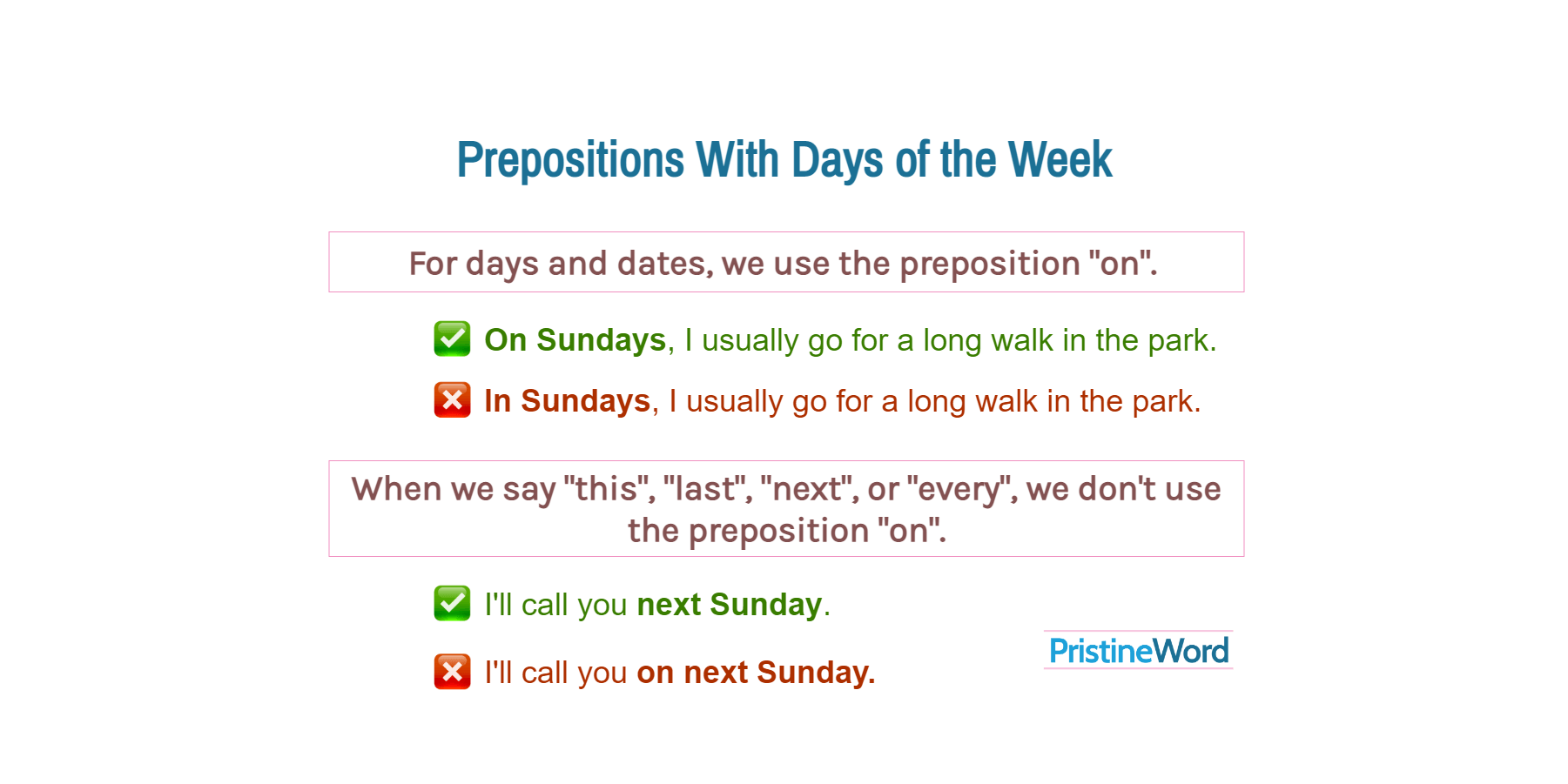For days, we use the preposition "on". In casual situations, many natives omit the preposition before the day of the week.
We use the preposition "on" for days and dates (not "in").
Alice is hosting a dinner party on Friday.
Alice is hosting a dinner party in Friday.
When introducing the plural form, you can use "on" as well.
On Mondays, my wife and I always go grocery shopping.
In informal situations or casual conversations, some natives drop "on". This is more common in American English than in British English.
I'll call you Monday night.
I'll call you on Monday night.
To refer to one of the days of the week in a year, include the article "a".
My sister's birthday is on a Wednesday this year.
Instead of "on", you can use one of the following determiners and adjectives before the noun:
-
Next:
Sandra has a doctor's appointment next Thursday.
-
Last:
Mark went to the dentist last Tuesday.
-
Every:
Every Sunday, Steven starts his day by engaging in a morning routine that includes meditation and eating a healthy breakfast.
-
This:
This Sunday is our 25th wedding anniversary.
When using "next", "last", "every", or "this", omit the preposition "on".
He'll call you next Tuesday.
He'll call you on next Tuesday.
Follow the same guidelines for the specific days of the week:

